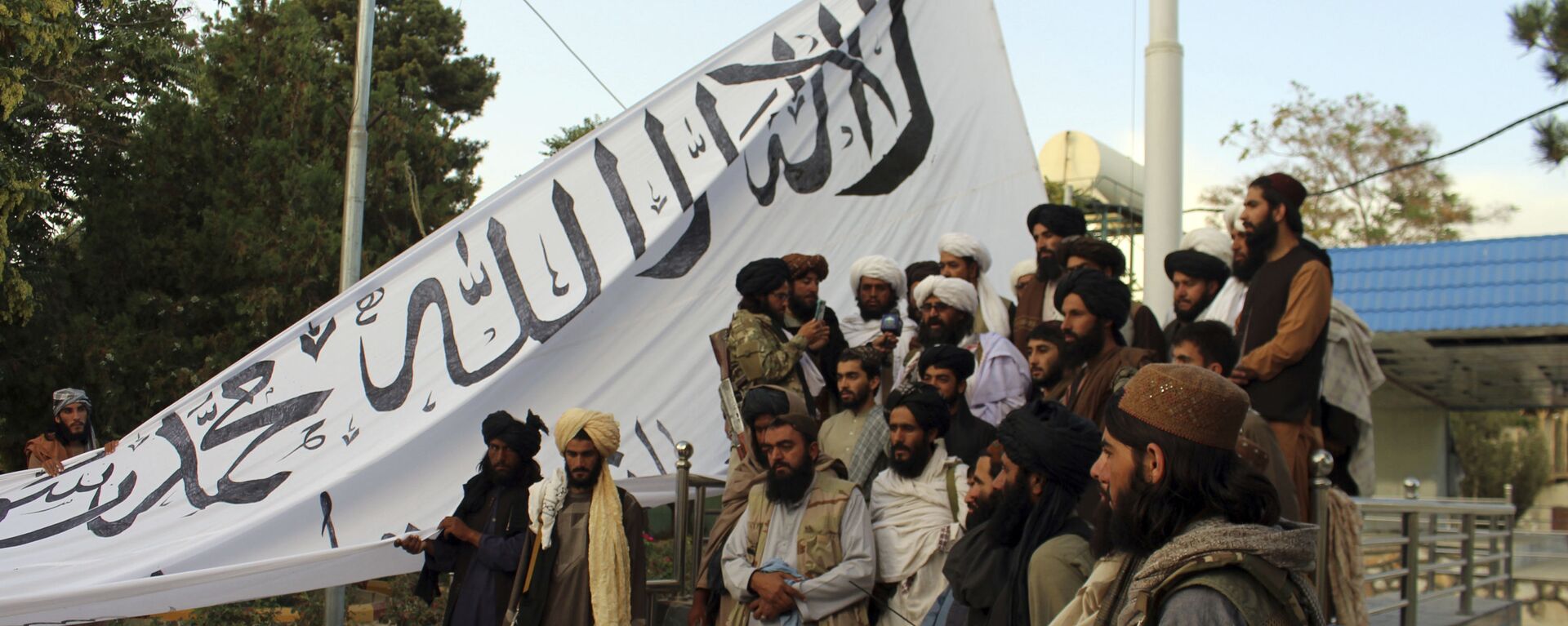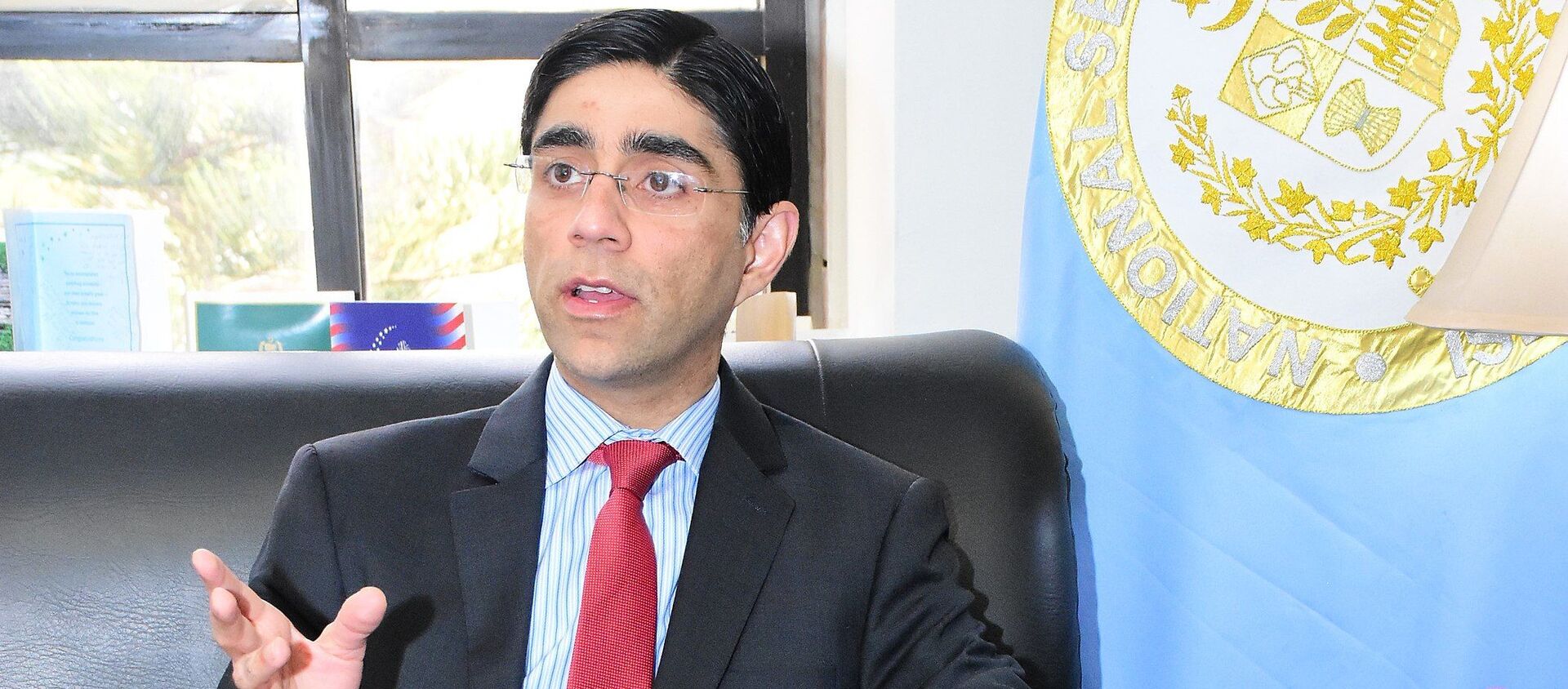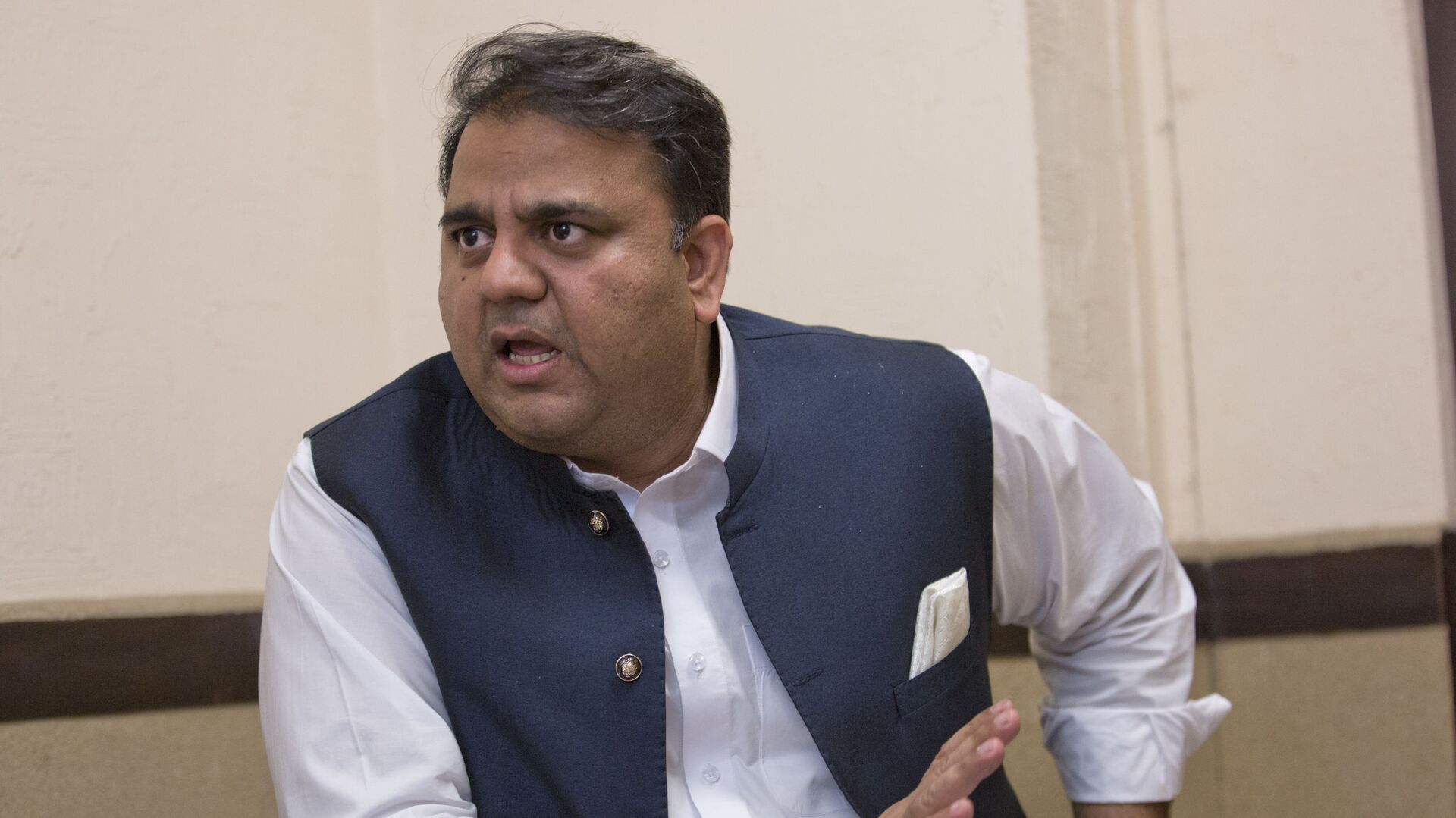https://sputnikglobe.com/20211227/retrogressive-thinking-is-danger-for-pakistan-islamabad-slams-talibans-new-restrictions-on-women-1091830994.html
'Retrogressive Thinking is Danger for Pakistan': Islamabad Slams Taliban's New Restrictions on Women
'Retrogressive Thinking is Danger for Pakistan': Islamabad Slams Taliban's New Restrictions on Women
Sputnik International
The restrictions on women’s civil liberties in Afghanistan come despite the country facing a humanitarian crisis due to the freezing of the nation’s federal assets by the US and other global financial institutions. The global community has linked the unlocking of these funds to the Islamist group respecting human rights, including those of women.
2021-12-27T16:28+0000
2021-12-27T16:28+0000
2022-12-08T18:02+0000
afghanistan
imran khan
bharatiya janata party (bjp)
afghanistan
taliban
asia
pakistan
https://cdn1.img.sputnikglobe.com/img/107825/49/1078254917_0:0:2941:1654_1920x0_80_0_0_2e3f8eca19ea25c47dddef4e77d0126f.jpg
Pakistan's Information Minister Fawad Chaudhry has slammed the Taliban* government in Afghanistan for imposing new restrictions on women, while stating at an event in Islamabad on Monday that such a “retrogressive thinking” poses a “danger” to his own nation as well.While Chaudhry didn’t explain in his speech how the Taliban’s ideology posed a danger to his country, there have been concerns in Pakistan that the Taliban victory could embolden some fundamentalists in the nation as well.The new rules for women in Afghanistan were issued by the Taliban’s Ministry of Propagation of Virtue and Prevention of Vice and bar taxi drivers from renting their cabs to women unless they follow the Islamic dress code, which involves wearing a hijab (headscarf).The ministry’s spokesperson Mohammad Sadiq Aqif has confirmed the authenticity of the new rules, as per the AFP.Further, the travel advisory calls upon taxi drivers to not take in women passengers for a journey greater than 72 kilometres unless they are accompanied by a male relative.On part of the taxi drivers, the Taliban advisory asks them to grow beards and not play music (deemed "un-Islamic" by the Taliban) in cabs and take breaks during the journey to follow the prayer regime.The new travel rules are the latest curbs imposed on the civil liberties of women since the Taliban came to power in Afghanistan in August this year. In September, the Taliban’s interim Higher Education Minister Abdul Baqi Haqqani announced the segregation of classrooms on the basis of gender and directed that female students will only be allowed to attend universities if they follow the Islamic dress code, which involves being covered from head to toe.Further, the Taliban is yet to make a call on allowing women at workplaces, except in certain sectors such as healthcare.Last month, the Taliban issued a set of nine “media guidelines” that banned soap operas with women actors and called upon news presenters to always wear a headscarf.The new as well as past restrictions placed on women's liberties in Afghanistan go against the commitments sought by the international community from the Taliban. Leading powers such as the US, Russia, and China have regularly called upon the Islamist group to allow equal opportunities for women in public life, including making women part of the Afghan Cabinet.‘Two Extremist Regimes’ on Both Sides of Pakistan“There are two extremist regimes that have come up on the right and left sides of Pakistan… On the one side, we have the Taliban…” Chaudhry also said in his Monday's speech.Islamabad has been scathingly critical of what Prime Minister Imran Khan has described as a “fascist” Indian regime, amid reports of persecution of Muslims by allies of the BJP since the party first came to power in 2014.Islamabad has also accused the BJP of carrying out a “demographic change” in the Muslim-majority region of Jammu and Kashmir, with its criticism becoming even blunter in the wake of New Delhi’s decision to scrap the semi-autonomous status of the region in August 2019. The region of Jammu and Kashmir is contested by Pakistan and India and controlled by both nuclear-armed neighbours.New Delhi, on its part, has also been sharply critical of the state of Hindu and Sikh minorities in Pakistan, alleging that both communities are regularly targeted by Islamist hardliners.*The Taliban is an organisation under UN sanctions over terrorist activities
https://sputnikglobe.com/20210829/pentagon-admits-co-mingling-of-taliban-haqqani-backtracks-on-separate-entities-valuation-1083744270.html
https://sputnikglobe.com/20210903/modis-india-is-risk-for-the-entire-world-pakistan-national-security-advisor-says-1083788063.html
afghanistan
pakistan
Sputnik International
feedback@sputniknews.com
+74956456601
MIA „Rosiya Segodnya“
2021
News
en_EN
Sputnik International
feedback@sputniknews.com
+74956456601
MIA „Rosiya Segodnya“
Sputnik International
feedback@sputniknews.com
+74956456601
MIA „Rosiya Segodnya“
pakitan, taliban, afghanistan
pakitan, taliban, afghanistan
'Retrogressive Thinking is Danger for Pakistan': Islamabad Slams Taliban's New Restrictions on Women
16:28 GMT 27.12.2021 (Updated: 18:02 GMT 08.12.2022) The restrictions on women’s civil liberties in Afghanistan come despite the country facing a humanitarian crisis due to the freezing of the nation’s federal assets by the US and other global financial institutions. The global community has linked the unlocking of these funds to the Islamist group respecting human rights, including those of women.
Pakistan's Information Minister Fawad Chaudhry has slammed the Taliban* government in Afghanistan for imposing
new restrictions on women, while stating at an event in Islamabad on Monday that such a “retrogressive thinking” poses a “danger” to his own nation as well.
“We want to help the people of Afghanistan… But the new diktat in Afghanistan says that the women can’t travel alone on taxis, can’t go to school alone…” the federal minister pointed out at event to commemorate the legacy of Pakistan’s founder and first Prime Minister Muhammad Ali Jinnah, who is fondly referred to as Quaid-i-Azam (the great leader).
While Chaudhry didn’t explain in his speech how the Taliban’s ideology posed a danger to his country, there have been concerns in Pakistan that the Taliban victory could embolden some fundamentalists in the nation as well.
The new rules for women in Afghanistan were issued by the Taliban’s Ministry of Propagation of Virtue and Prevention of Vice and bar taxi drivers from renting their cabs to women unless they follow the Islamic dress code, which involves wearing a hijab (headscarf).
The ministry’s spokesperson Mohammad Sadiq Aqif has confirmed the authenticity of the new rules, as per the AFP.
Further, the travel advisory calls upon taxi drivers to not take in women passengers for a journey greater than 72 kilometres unless they are accompanied by a male relative.
On part of the taxi drivers, the Taliban advisory asks them to grow beards and not play music (deemed "un-Islamic" by the Taliban) in cabs and take breaks during the journey to follow the prayer regime.

29 August 2021, 08:15 GMT
The new travel rules are the latest curbs imposed on the civil liberties of women since the Taliban came to power in Afghanistan in August this year.
In September, the Taliban’s interim Higher Education Minister Abdul Baqi Haqqani announced the segregation of classrooms on the basis of gender and directed that female students will only be allowed to attend universities if they follow the Islamic dress code, which involves being covered from head to toe.
Further, the Taliban is yet to make a call on allowing women at workplaces, except in certain sectors such as healthcare.
Last month, the Taliban issued a set of nine “media guidelines” that banned soap operas with women actors and called upon news presenters to always wear a headscarf.
The new as well as past restrictions placed on women's liberties in Afghanistan go against the commitments sought by the international community from the Taliban.
Leading powers such as the US, Russia, and China have regularly called upon the Islamist group to allow
equal opportunities for women in public life, including making women part of the Afghan Cabinet.
‘Two Extremist Regimes’ on Both Sides of Pakistan
“There are two extremist regimes that have come up on the right and left sides of Pakistan… On the one side, we have the Taliban…” Chaudhry also said in his Monday's speech.
“On the other hand, there is this Hindu extremism which is taking roots [in India]…” he went on, in reference to Prime Minister Narendra Modi’s Bharatiya Janata Party (BJP)-led government in New Delhi.
Islamabad has been scathingly critical of what Prime Minister Imran Khan has described as a “fascist” Indian regime, amid reports of persecution of Muslims by allies of the BJP since the party first came to power in 2014.
Islamabad has also accused the BJP of carrying out a “demographic change” in the Muslim-majority region of Jammu and Kashmir, with its criticism becoming even blunter in the wake of New Delhi’s decision to scrap the semi-autonomous status of the region in August 2019.
The region of Jammu and Kashmir is contested by Pakistan and India and controlled by both nuclear-armed neighbours.

3 September 2021, 13:33 GMT
New Delhi, on its part, has also been sharply critical of the state of Hindu and Sikh minorities in Pakistan, alleging that both communities are regularly targeted by Islamist hardliners.
*The Taliban is an organisation under UN sanctions over terrorist activities






